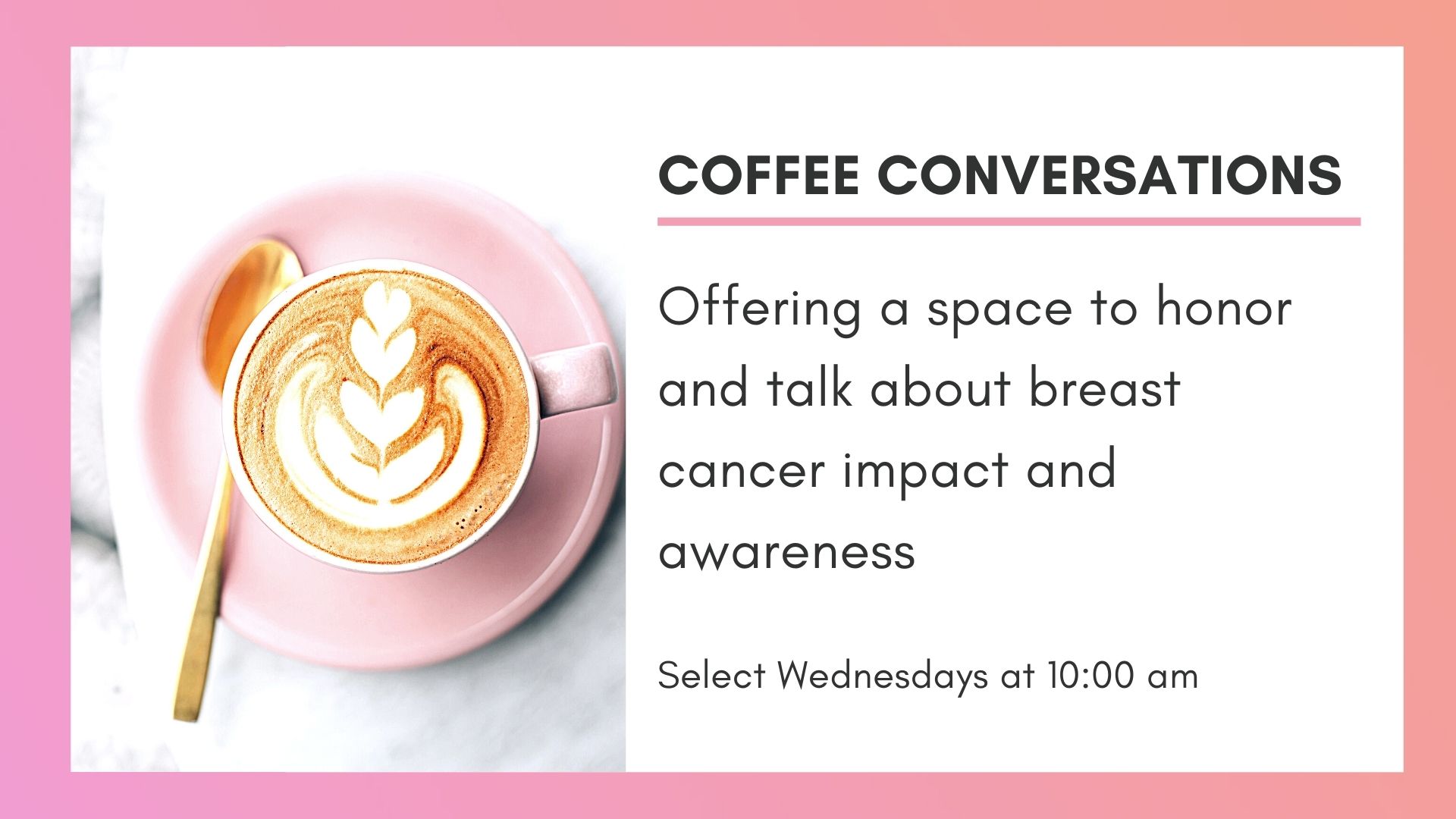Each month Forge hosts “Coffee Conversations” an opportunity to speak with a breast cancer survivor, co-survivor, or healthcare professional on a variety of breast cancer-related topics. Recently, we had the chance to speak with Dondra Goldsby, a Birmingham native, who is a Licensed Marriage and Family Therapist. She is also a breast cancer survivor. Diagnosed in November 2020, Dondra stopped by a recent coffee conversation to share about her journey with breast cancer and setting boundaries. You can find a recording of her Coffee Conversation HERE as well as all of our previous conversations!
How did you navigate the “panic” from others regarding your news?
Dondra said she needed a minute to sit with the news and to take in her diagnosis. She realized very early on that strong boundaries were essential to moving forward.
Why is it so important to implement boundaries?
Boundaries get a bad rap as something that is mean or harsh, but setting boundaries has a helpful side and can be done without causing hurt feelings.
It is important to set limits on what is ok to talk about and on what is needed. People have a lot of ideas around what is helpful but only you know what you really need (or do not need).
Dondra chose a small circle to tell when she was first diagnosed. She needed time to absorb her own diagnosis and think through her own questions. With so many decisions to be made so quickly, Dondra needed a moment to have space to think.
How do we control boundaries and start implementing them?
There is not very much control after diagnosis. As much as you think you can control the information, you really can’t. Certain people have to know. You really cannot have a breast cancer diagnosis in secrecy and in isolation.
Outside of the people who need to know about your diagnosis, you can control who learns, when they know, and who tells them. It’s ok to hold off on telling others. Your cancer may look different than that of someone else. Your doctors will decide on a care plan that is unique and specific to you.
The process of diagnosis, setting a plan, and beginning treatment is overwhelming. It is even more overwhelming when caring people ask you questions before tests are even run or results are received.
What is a healthy way to implement a boundary when someone is asking you to share beyond your comfort level?
You know where you are emotionally and physically. Only you know what you need and what you can handle!
Cancer is invasive. Every part of every test and every procedure is invasive. And it is all personal. It is ok to set boundaries on who gets to know what information. You can put someone else in charge of sharing updates or let someone know you will reach out when you are able.
How do you set a boundary on the information you receive?
All stories are not created equal, and all stories do not end in hope. Please remember that just because someone wants to share a story or piece of advice, you do not have to listen. You must protect your well-being and if that means shutting down unsolicited feedback, then shut it down!
It is not rude to protect your well-being. You may be able to change the subject or end the phone call. Or, you may need to be more direct and let the other person know that what they are telling you is not helpful at all.
Remember that you know what is best for you. Maybe you can say something like, “I appreciate your support, but my needs are being met right now.” Be sure to let people know what you need and also when you need it. People will want to help, but they may need some guidance.
You do not have to do it all alone. Gather your closest support circle, the people who really listen and care about your well-being. Ask them to answer questions or pass along information. Let them coordinate if someone is trying to plan meals. You cannot do it all!
How do you get through the apprehension of hurting feelings by setting boundaries?
Right now, you are the person with cancer. Those who care about you will understand that you know what is best for you. Let them know if it’s not a good time to talk or if you don’t have the energy to greet them at the door. Some days you might want to take a day off and not talk about having cancer.
Take time to rest and set aside time for self-care. Put a raincheck on visits from friends and family if you aren’t ready.
What are your thoughts or suggestions for those who have difficulty setting boundaries or those who are setting boundaries for the first time?
A breast cancer diagnosis does not just impact the person with the diagnosis – it affects everyone who cares about them. Use your outlets. If you need support, reach out and find people who understand. Join a support group and build a community. There is no perfect solution, but you have to listen to your heart and what you need.
Maybe you can find support through a Facebook group or a Caring Bridge page. Interact with organizations like Forge that can connect you with others through fellowship and support groups. And of course, set boundaries as you need to, and don’t be afraid to remove those boundaries when you feel comfortable.
Dondra left us with these thoughts: “We grieve, we heal, and we celebrate in community.
To find out about upcoming Coffee Conversations and other programs visit www.forgeon.org/events
